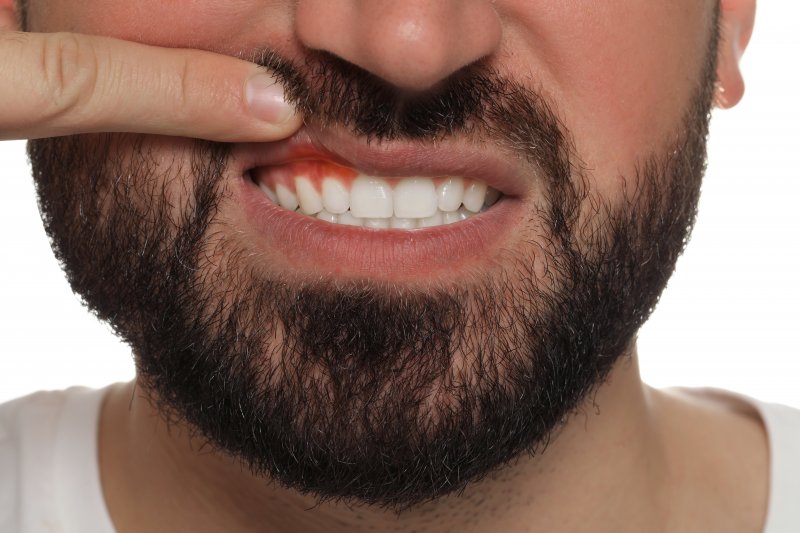
Advanced gum disease is known to cause loose teeth and bone loss if left untreated. Although there are ways to manage periodontitis and more serious forms of this disease, you may begin to wonder if it might be easier to just remove one or more teeth. After all, extracting them will take care of your gum disease problem, right? Before making a decision, read on to determine whether this belief is true and what your periodontist can do.
Is Tooth Extraction the Answer to “Curing” Gum Disease?
No. Tooth extraction will not stop the spread of gum disease. The reason is that the infection doesn’t exist within teeth but instead, bacteria attack the soft oral tissues that help hold them in place. Although plaque and tartar can accumulate on your pearly whites, it is the gums that experience the devasting effects of the infection.
Even if teeth are removed, gum disease can still exist.
However, it may be necessary to still extract one or more teeth should your periodontist believe it is necessary to ensure your oral and overall health.
Why is Tooth Extraction Sometimes Necessary?
Your periodontist will likely recommend tooth removal if you are living with an advanced stage of gum disease, and your teeth are loose and about to fall out. At a certain point, they will no longer be savable, which means the only way to safeguard the health of your smile is to remove them and discuss the various options that are available for replacing them.
This may include dentures, dental bridges, or dental implants. But before this can be determined, your periodontist will need to examine the density of your jawbone after you are fully healed from your extraction procedure. A bone graft may be necessary to support artificial teeth in the future.
How Can Gum Disease Be Treated?
Whether you are recommended for tooth removal or not, you can still expect that your dental team will find ways to treat your advanced gum disease. This might mean:
- Scaling and Root Planing: The process of removing accumulated plaque and tartar from teeth and gum pockets before smoothing and reshaping tooth roots to encourage reattachment.
- Laser Therapy: The use of a soft tissue laser to target pockets of bacteria and remove damaged tissues, effectively treating the diseased gums and preventing significant bleeding and swelling. This process allows for faster recovery and a more precise form of treatment.
- Gum Grafting: If your gums begin to recede, your tooth roots may become exposed, resulting in possible sensitivity. By taking tissue from another part of your mouth, your periodontist can graft it in place over the root and stitch it closed so that it will heal over time.
Although tooth extraction will not eliminate gum disease, it can be a step in the right direction. Only your periodontist can determine how to move forward and achieve successful results.
About the Author
Dr. Richard Aguila earned his bachelor’s degree in chemistry, graduating Summa Cum Laude, as well as his Doctor of Dental Surgery degree from West Virginia University. He then went on to attend the Naval Medical Center San Diego to complete a hospital-based General Practice Residency. Dr. Aguila also possesses a master’s degree in health sciences and a certificate in periodontics. At Jacksonville Dental Specialists, he and Dr. Matthew Nawrocki understand the difficulties periodontal disease can pose to your oral and overall health, which is why we offer gum disease treatment. Find out how we can help you regain control of your oral health by contacting us at (904) 683-4781.
